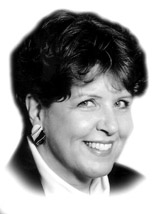A funny thing happened on the way to the Vatican: Thomas Merton came up missing. The colorful Trappist monk and best-selling author wrote about his stormy life before his extraordinary conversion as a young adult (see “The Seven Storey Mountain”) and his subsequent fervent exploration of Catholic spirituality (see “The Sign of Jonas”). A few men, however, have decided that Merton is just the kind of spiritual and intellectual experimenter that twenty-something Catholics are too naïve to safely study.
Merton’s disappearance happened at some point after the U.S. bishops’ overwhelming 218-10 approval of the historic U.S. Catholic Catechism for Adults – which they said specifically targets young adult Catholics – but before the text could be sent to the Vatican for approval. What is it about Thomas Merton that the bishops don’t want young adult Catholics to know?
The bishops apparently excised Merton because of two critics – Msgr. Michael Wrenn, Dean of St. Joseph Seminary in New York and former U.S. Assistant Secretary of Education Kenneth D. Whitehead. They described Merton as a “lapsed monk” who went “wandering in the East” studying “non-Christian, Eastern spirituality,” for which he could “scarcely be considered an ‘exemplary Catholic.'” They added that the catechism’s inclusion of Merton cast doubt on its editors’ “understanding of Catholic teaching and practice.”
Speaking of understanding Catholic teaching and practice, many Catholics do not know that while every Roman Catholic must accede to the teaching authority of the pope and bishops, Church law invests every Catholic with the duty to critically examine both catechism and conscience. (See the Code of Canon Law, §212.) This is a responsibility that Wrenn and Whitehead apparently want to withhold from young adult Catholics.
Wrenn and Whitehead were concerned with more than Merton, however. In a recent paper, they excoriated the catechism editors in general for including biographies of “controversial” and “near-contemporary” Catholics. In particular, they cited Sister Thea Bowman, the first African-American woman to receive a Doctorate in Theology from Boston College, because her concern with educating poor blacks was “hardly an unalloyed Gospel message.” They also complained about Cesar Chavez, the Mexican-American founder of the United Farm Workers, because his work to unionize farm hands was “partisan and controversial.”
Further, the two men said, the catechism’s description of Vatican II reformer Pope John XXIII as a man of “cheerful optimism” was simply “wrong,” especially compared to the “great pontificate of John Paul II.” Oddly, Wrenn and Whitehead ignored the self-evident contradiction that John Paul II is both controversial and contemporary.
But there’s something darker, more disturbing at work here. In their condemnation of Thomas Merton, Wrenn and Whitehead conspicuously omitted the widely known circumstance that in 1968, the year of his accidental death by electrocution, the “lapsed monk” was not “wandering around the East.”
In the spirit of Vatican II, Merton was attending an ecumenical conference of Catholic and Buddhist monks in Thailand, with official permission from his superiors at the Abbey of Gethsemani in Kentucky, where he lived. This stark error of fact casts doubt on Wrenn and Whitehead’s intellectual honesty.
One gets the feeling that the U.S. bishops weren’t entirely up-front, either, for two reasons. First, they claimed they removed Merton’s biography because young adult Catholics have “no idea who he was.” But a recent Amazon.com search returned 647 results for books by and about Merton, and the International Thomas Merton Society grants scholarships to young adults. Second, the bishops said they ejected Merton in favor of the first American saint, Elizabeth Ann Seton, to provide more gender balance. As politically polite as that sounds, it means that the bishops originally left the first American saint out of the catechism. Something is not right.
I maintain that today’s young adults are both spiritual seekers and intellectually demanding. Thomas Merton, whose books attracted large numbers of converts and seminarians following World War II, offers today’s young adult Catholics the sense of mystery that roots the Catholic imagination. The bishops have removed not only Merton’s biography but also a rare and valuable teaching moment, an opportunity to grace young Catholics with a sense of the sacred at work in a harsh and cunning world.
The catechism conflict is another hint at the current confusion about what it means to be an “orthodox” Catholic, who is or is not a “suitable” role model for orthodoxy, and the spirit in which we are to examine these questions.
Deborah Halter, Ph.D., is areligious studies instructor.








